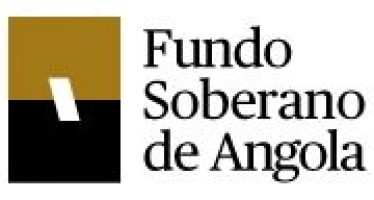IMF Mission Reports Positive Developments in Georgia

Tbilisi, Georgia
An International Monetary Fund (IMF) mission visited Tbilisi from November 27 to December 12, 2012 for discussions on the first review of the economic programme supported by a blend of a Stand-By Arrangement (SBA) and Stand-By Credit Facility (SCF). The 24-month arrangement with a total access of SDR 250.0 (about US$390 million), evenly divided between the SBA and the concessional SCF, was approved on April 11, 2012.
On December 18, 2012, Mark Griffiths, IMF Mission Chief for Georgia, commented, “The IMF mission and the authorities have made substantial progress during our visit. We have worked closely with the new government and have discussed how the existing IMF arrangement can support its economic and financial policies. The authorities have expressed their commitment to the main objectives of the Fund-supported program: promoting external sustainability through reduction of the current account deficit and lowering the budget deficit, so as to improve market confidence and generate sustained private sector-led growth.
“The IMF mission and the authorities have made substantial progress during our visit.”
“Macroeconomic developments have been generally positive this year. Growth has been strong, while inflation has fallen sharply. While there are some signs that growth may have eased recently, reflecting lower growth in trading partners, some slowdown in foreign direct investment, and recent uncertainties associated with the elections and the political transition, the economy is expected to expand by 7 per cent in 2012.
“Performance under the SBA/SCF arrangement has been good: end-June 2012 targets as well as all structural benchmarks have been met. The authorities are on track to meet the end-December 2012 targets. Fiscal consolidation remains on track, with the fiscal deficit in 2012 targeted to decline to 3.5 percent of GDP, though the current account deficit has been higher than projected.
“For 2013, the mission projects that GDP growth could reach 6 percent. This forecast is subject to risks. On the upside, there is the possibility of increased trade with Russia and of new sources of foreign investment. However, if the current uncertainty persists or demand from trading partners falters, then growth could be lower. Strong domestic policies and communication are needed to instill confidence and to reassure markets that the new government is committed to prudent macroeconomic policies and further enhancing Georgia’s business-friendly environment.

National bank of Georgia
“Inflation has remained very low in 2012 due to the earlier nominal appreciation of the lari against currencies of Georgia’s main trading partners, and declines in food prices over the last 12 months. As the impact of these temporary factors wears off, the mission projects that inflation will increase from -0.5 percent in November to 4 percent by end-2013, and gradually move toward the medium term inflation objective of the National Bank of Georgia (NBG). The mission considers that the monetary policy stance, including the recent cut in official interest rates, is broadly appropriate and consistent with the projected rise in inflation.
“The draft 2013 budget is socially oriented yet prudent. It increases social spending to protect the most vulnerable, while continuing with the path of fiscal consolidation. The fiscal deficit is projected to decline to 2.8 per cent of GDP in 2013. This will facilitate external adjustment and create room for countercyclical fiscal policy. This is consistent with the medium-term strategy to bring the deficit down to about 1½ percent of GDP by 2016 and should keep Georgia’s government’s debt-to-GDP ratio on a firm downward path.
“Georgia’s high current account deficit is a source of vulnerability and its reduction is a key macroeconomic challenge. The authorities plan to pursue a reduction in the current account deficit in 2013 and beyond through fiscal consolidation, a more flexible exchange rate, and structural reforms to improve Georgia’s competitiveness. As a result, the current account deficit is projected to fall to 10.0 percent of GDP in 2013 from 12.7 percent of GDP in 2012.
“The NBG should allow a greater degree of exchange rate flexibility in the context of its monetary policy dedicated to price stability and the need to maintain a comfortable level of international reserves. To fulfill these objectives and to continue safeguarding financial stability, it is important for the government to reaffirm and respect the independence of the NBG.
“Finally, the mission would like to thank the government, the NBG, and the many people it has met during its visit for open and constructive discussions and for their generous hospitality. The mission looks forward to finalising with the authorities the letter of intent, so that the review can be completed in early 2013. “
You may have an interest in also reading…
Angola’s Sovereign Wealth Fund Announces Investment Policy
Asset allocation to support preservation of capital, maximisation of returns and infrastructure development José Filomeno dos Santos appointed FSDEA chairman
Anshula Kant, MD and CFO of the World Bank Group: Power of Capital Markets in the Battle Against COVID-19
Managing Director and World Bank Group CFO Anshula Kant reflects on the crisis engulfing the world, and the opportunities we
Biggest Commodity Price Shock in 50 Years is Here
In addition to death and destruction in Ukraine, the Russian invasion brought several significant shocks to the global economy. The

















































































